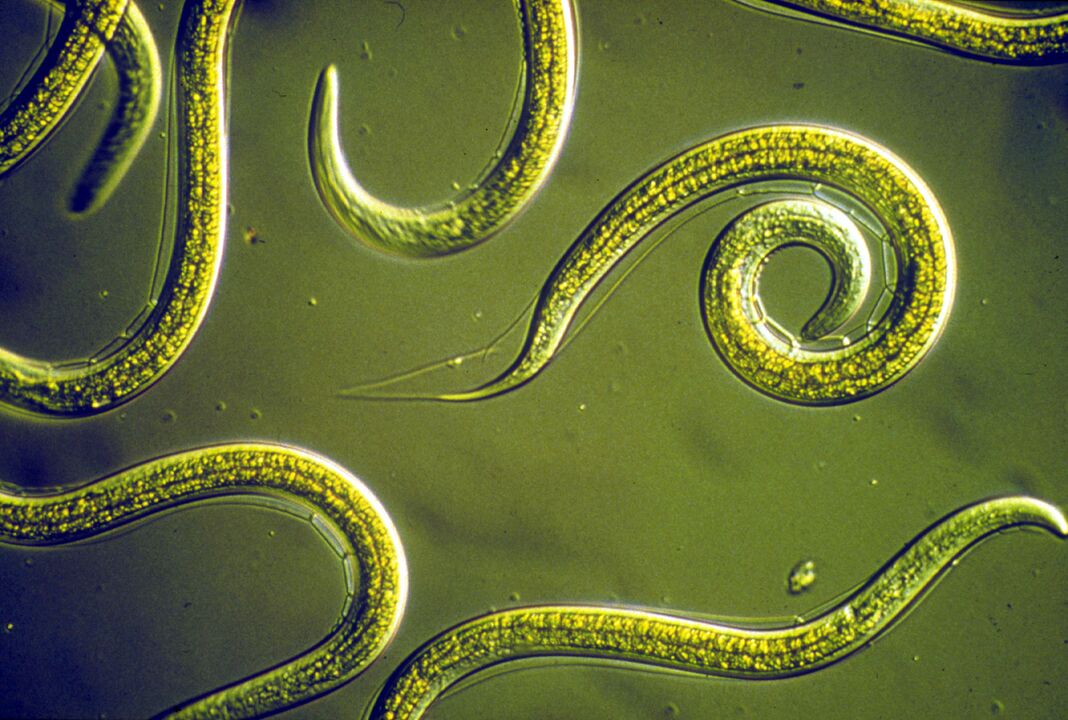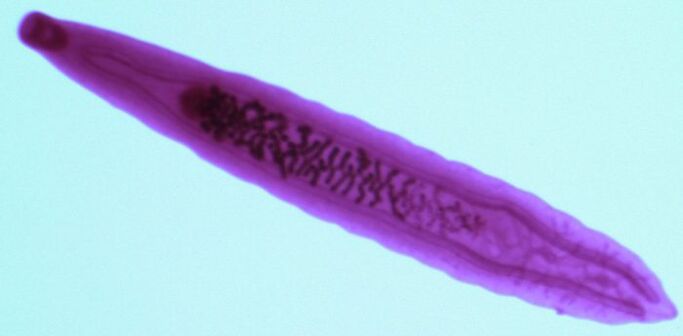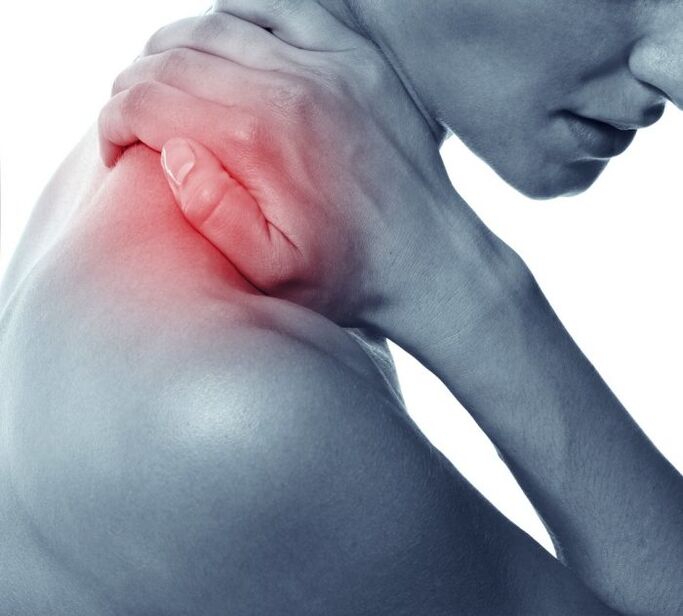Anyone can experience a worm infestation. Small children - attending kindergarten, adults - for other reasons. Despite all preventive measures, you should know the signs of worms in humans in order to timely identify the disease and start treatment. What are the worms, where they settle and how they manifest themselves - we will dwell on this in more detail.
Which organs can worms attack?

There are two types of invasions: abdominal and tissue. Depending on the species, the habitats are also divided:
- Cavern worms settle in the small and large intestine. In particular, the first sections of the small intestine are affected by a broad tapeworm, hookworm, roundworm. The lower part of the small intestine is the habitat of the dwarf tapeworm, pinworm. The large intestine most often becomes the habitat of the whipworm.
- Tissue worms affect organs of all kinds: liver, brain, lymph nodes, bile ducts.
Important! It is impossible to determine the signs of the presence of worms in a patient at the initial stage of the development of an invasion. While the number of worms is small, toxic poisoning with waste products is within the normal range, the body copes with the invasion itself. The appearance of characteristic or acute symptoms indicates a significant increase in the number of helminthic invasions: the maturation of individuals and their dynamic development.
types of chains

Determining the signs of worms in adults, you should understand what kind of invasion it is:
- Vlasoklavy. Chains were named after the threadlike body with a bulge at the rear end. The life cycle of parasites is direct. Habitat - tropics, subtropics. Chains are localized in the cecum, so they are difficult to etch.
- nematode. A suborder of roundworms that live in nature and in the human body. The best known representatives: roundworms, pinworms.
- Fluke. Flat type leeches. They pose a major threat to the wearer's body as they can colonize any organ and system. Representatives: schistosomiasis, opisthorchiasis worms.
- Pork Tapeworm (Tapeworm). Tapeworms are hermaphrodites. With strong hooks on their heads to attach to walls, they can affect the brain, intestines, liver, eyes, and muscles. Consequences of non-treatment: paralysis, death of the wearer.
All types of worms are found in the human body. After the patient is ill with ascariasis, enterobiasis, diphyllobothriasis, he suffers from a lack of nutrients, the intestines no longer absorb food residues normally. Consequences of the invasion: metabolic disorders, neurohumoral reaction.
A few facts about the routes of infection:
- ascariasis - unwashed vegetables, fruits, hands;
- Raw or lightly salted fish, caviar - diphyllobothriasis;
- Pinworms - contact household method. The period of development is up to 60 days, after which there is a chronic invasive phase, which is characterized by a decrease in immunity and a high incidence of infectious diseases, exacerbations of chronic processes.
Signs of worms in humans
General symptoms of worms in adults depend on the location of the worms. The main danger comes from parasites that settle in vital organs. Worms appeared, symptoms are implicit: weakness, cough. And although for a full diagnosis, an examination is required. However, there are a number of signs that can help you determine where the worms are and if they even exist.
brain

Most often there are no obvious symptoms, but when worms live in the human brain, the patient may experience the following:
- persistent bouts of nausea;
- frequent vomiting;
- great weakness;
- lethargy of consciousness;
- decreased visual acuity, hearing;
- Fluctuations in body temperature for no apparent reason;
- Epilepsy.
Fact! Most often, parasites in the brain are only found after an autopsy.
In body

Hundreds of known types of parasites can settle in a patient's body. It is difficult to determine the presence of worms in an adult's body. Symptoms vary depending on the location: in the heart, in the liver, in the lungs, under the skin. Common signs of worms in an adult:
- muscle, joint pain;
- deterioration of the skin;
- Weight jumps: reduce or stop;
- strong constant fatigue;
- immediate decrease in immunity.
Fact! Some worms have the ability to crawl from the anus to the perineum, enter the bloodstream to other organs, appear in the abdominal cavity, and infest the nose and ears.
In the gut

The most common worms in humans, the symptoms of which are more pronounced, can be located in the large and small intestine. Infection occurs through the mouth, through contact. The period of development of the larva and adult from the egg occurs in the intestinal mucosa. The parasite absorbs nutrients for itself and blocks their absorption through the intestine. Because of this, there are intestinal problems that cause helminths in adults. Symptoms:
- the stomach is often swollen;
- the stool is broken;
- bloating appears;
- changes in body weight;
- want to eat consistently and vigorously.
Of course, with worms, the symptoms can be different and overgrown with characteristic signs of gastric diseases, if the patient has any. That is why correct diagnostic measures are so important. Only a specialist will determine exactly: where the worm is located, the nature and dynamics of the development of the invasion.
Signs of helminthiasis depending on the type of parasite
Symptoms of worms in an adult may differ from childhood symptoms. Strong immunity repels an invasion, but the child has no such trait. Knowing the signs of the presence of worms in a person makes it easier to understand the cause of the disease and consult a doctor at the first suspicion of infection. An infectious disease specialist, parasitologist, helminthologist - a specialist with the necessary profile will quickly find out where in the human body the worms live and how to get rid of them.
Each parasite provokes the appearance of its own symptoms:
- from tapeworms there are intestinal problems: loss of appetite, sleep disorders, flatulence;
- from around - cough, flatulence, gas formation, loss of appetite.
Important! Roundworms or roundworms grow up to 40 cm in length and can easily move along the walls of the intestine, live in the lungs and liver. This is a very dangerous invasion that should be eliminated.
Regardless of whether tapeworms or roundworms have established themselves in the human body, they must be removed. Even in minimal amounts, the invasion can severely damage the body, and in large numbers, the parasites poison the host, often resulting in the death of the patient. Knowing where the worms live, do not rush to write off frequent bloating because of ordinary indigestion. Perhaps this is a sign of helminthiasis, which means it's time to see a doctor.








































